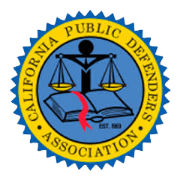
Facing insurance fraud penalties can feel overwhelming. These penalties impact your freedom, reputation, and future. This article explains insurance fraud penalties, from state and federal laws to potential defenses and includes information about the national insurance crime bureau (NICB).
Table of Contents:
- Understanding Insurance Fraud
- Insurance Fraud Penalties: What You Can Expect
- Defending Against Insurance Fraud Charges
- Real-Life Examples of Insurance Fraud Penalties
- Conclusion
Understanding Insurance Fraud
Insurance fraud involves lying to an insurance company for financial gain. This includes staging accidents, inflating claims, faking medical bills, and identity theft. It’s a serious crime with severe repercussions across several types of insurance, impacting the insurance industry as a whole.
Types of Insurance Fraud
Insurance fraud affects various insurance types. Common examples include auto insurance fraud (staged accidents), workers’ compensation fraud (false injury claims), and healthcare fraud (billing for unrendered services). Homeowners insurance fraud (exaggerated theft claims) and life insurance fraud also occur.
Even seemingly minor actions, like padding a stolen items list after a burglary, constitute insurance fraud. Insurance fraud costs everyone through higher premiums.
Insurance Fraud Penalties: What You Can Expect
Penalties for committing insurance fraud depend on factors like the state, the amount of money involved, and the defendant’s criminal history. Understanding the potential outcomes is important for consumer protection. Insurance companies work with law enforcement agencies to combat these crimes. Committing insurance fraud can result in penalties like fines, restitution, community service, probation, and jail time.
| Penalty Type | Description |
|---|---|
| Fines | Monetary penalties are based on the fraud’s scale. |
| Restitution | Repaying the defrauded insurance company for their losses. |
| Community Service | Unpaid work for community benefit as part of the sentence. |
| Probation | Supervised release instead of imprisonment, with conditions. |
| Jail or Prison Time | Incarceration ranges from months to decades, particularly for “hard fraud.” |
Federal vs. State Penalties
According to the fraud division overview, many insurance fraud cases are handled at the state level. State laws and penalties for insurance fraud schemes differ. Consult your state’s laws for specific penalties. Some cases involving multiple states, federal insurance programs (like Medicare), or significant losses become federal cases.
Federal penalties for insurance fraud are often harsher. These often include lengthy prison sentences. Be sure to learn about how fraud occurs in these situations.
Defending Against Insurance Fraud Charges
If you’re facing insurance fraud charges, understand your defense options. A skilled lawyer specializing in insurance fraud and fraud reporting is essential.
Lack of Intent
Insurance fraud requires intent to deceive the insurer. If inaccuracies were unintentional mistakes, this is a strong defense. Proving a lack of intent can reduce penalties or lead to dismissal of the charges.
Insufficient Evidence
The prosecution needs sufficient evidence for a conviction. Challenging the evidence’s credibility or highlighting errors in documentation can create reasonable doubt. A thorough review of the evidence is crucial in any insurance claim.
Entrapment
If law enforcement coerced you into committing fraud, you might use the entrapment defense. This defense argues that you wouldn’t have committed fraud without undue pressure from law enforcement. This defense relates directly back to the suspected insurance fraud you are being charged with.
Good Faith
The good faith defense asserts that you believed the information you provided was accurate. For example, if you genuinely thought the car damage was extensive, even if later determined less severe, this defense might apply. This would include your insurance policy information to defend your claim.
Real-Life Examples of Insurance Fraud Penalties
Recent cases demonstrate the severe insurance fraud penalties. These examples emphasize the need for honest insurance claims.
- Former NFL player Corey Bradford received deferred adjudication, community service, and restitution for fraudulent health claims. This is a major example of committing insurance fraud.
- A Houston law firm received a cease-and-desist order for its alleged scheme with Apex Roofing and Restoration (source). Such schemes greatly increase fraud costs.
- A Texas mayor was arrested on insurance fraud charges, highlighting the serious consequences for any individual. Insurance fraud schemes are being watched by the fraud division and anyone committing insurance fraud is subject to being caught.
Conclusion
Insurance fraud penalties, ranging from fines to jail time, significantly impact your life. If you’re accused, a strong defense is vital. State laws vary, so an experienced lawyer familiar with these cases is essential.
Don’t face insurance fraud penalties alone; seek legal counsel immediately. Contact the National Insurance Crime Bureau (NICB) or other fraud reporting channels like your state’s insurance fraud division or department of insurance if you encounter suspected insurance fraud or suspect fraud of any kind.




